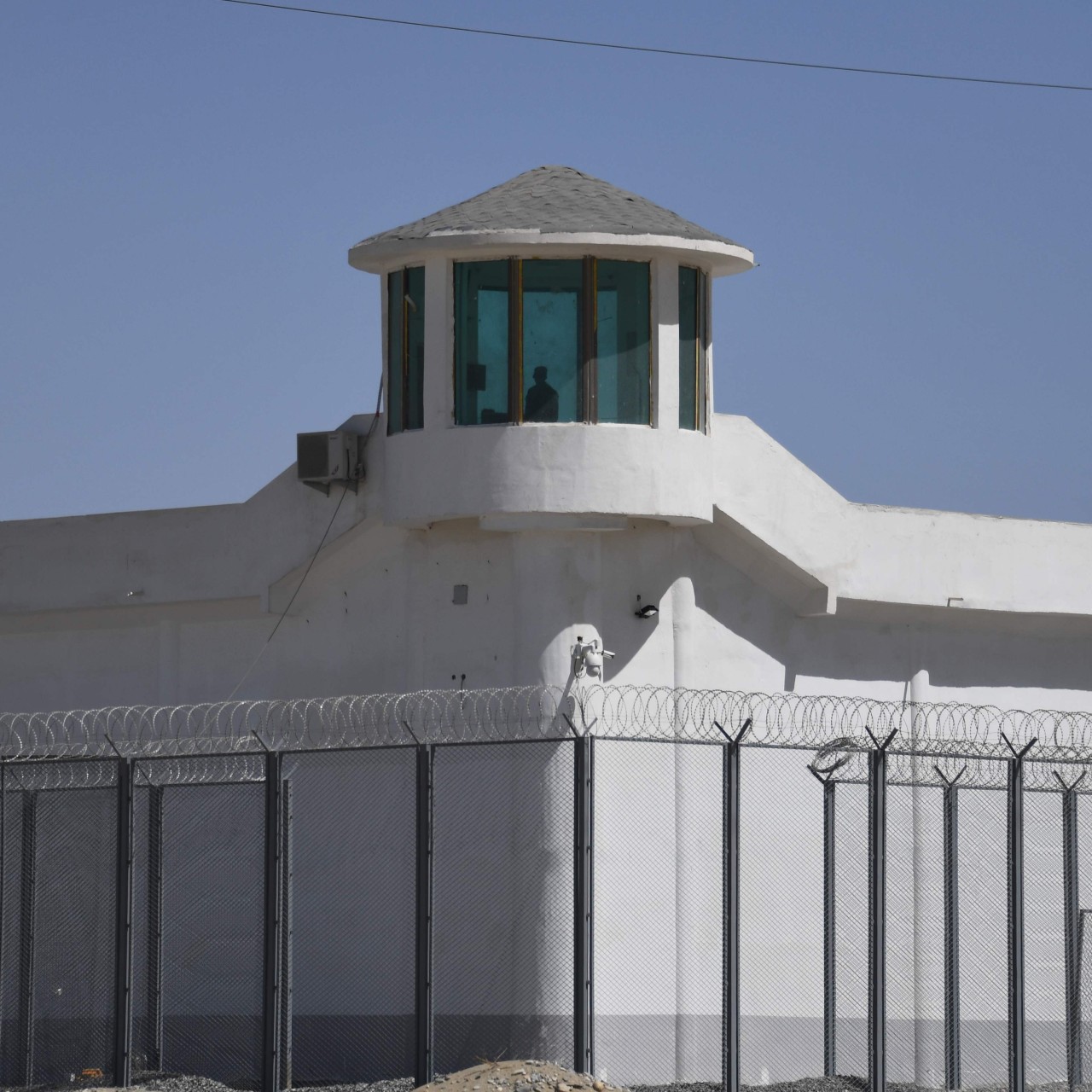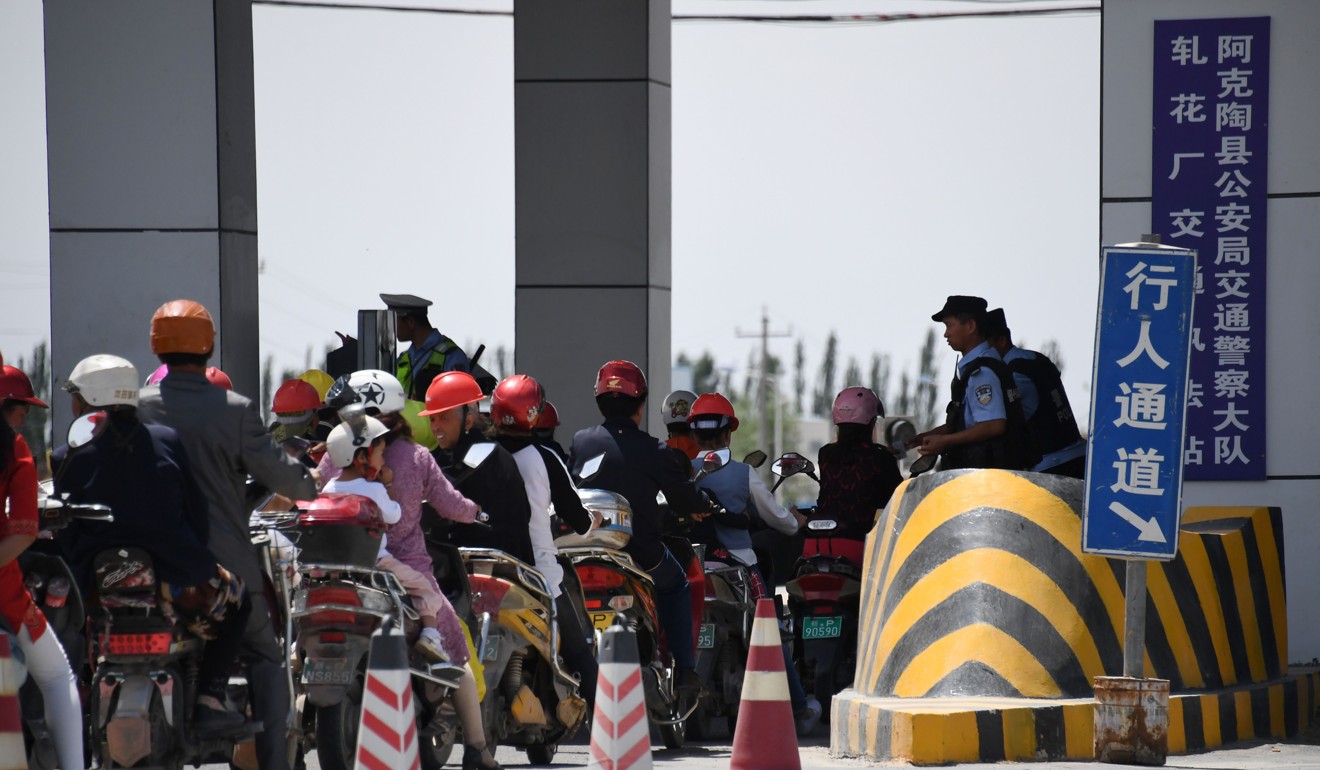
While China has gone to great lengths to paint its internment camps in Xinjiang as humane “boarding schools”, a researcher has found abundant evidence to refute the propaganda claims from the government’s own documents.
Adrian Zenz, an independent German researcher focusing on Xinjiang, has examined a vast body of government documents to determine what he calls the “true nature and extent” of the camps, finding evidence of coercive internment, heavy presence of police guards and political brainwashing.
Zenz’s research was published on The Journal of Political Risk website on Monday. According to the site, it is a peer-reviewed journal covering political risk and opportunity, produced and maintained by Corr Analytics, an international political risk analysis and consulting firm.
In response to mounting international outcry over its internment of an estimated one million or more Uygurs and other mostly Muslim minorities in far western Xinjiang, the Chinese government has launched an all-out public relations offensive to defend the camps, which it says are “vocational education and training centres” that offer a benign alternative to formal prosecution for people “influenced by religious extremism”.
Zenz’s research seeks to refute these claims with the government’s own statements, as entailed in official documents and related reports that are not intended for international audiences.
Numerous government documents, for example, make clear that these “trainees” are in fact in detention, despite propaganda efforts to paint them as attending “voluntarily”. Phrases like “detained trainees” and “persons detained in re-education” frequently appear in the documents, including reports of government employees’ visits to villages.
In contrast to the “schools” shown in state media footage and selected for foreign diplomats and journalists to visit on their highly controlled tours to Xinjiang, the government-issued construction bids researched by Zenz feature heavily guarded, prison-like facilities that require high walls, barbed wire, watchtowers, elaborate internal camera systems, police stations and even bases for special police units.
In Kashgar prefecture, for instance, all “vocational education and training centres” must be equipped with the “five preventative measures” as demanded by the region’s hardline Communist Party boss, Chen Quanguo. One of them is “escape prevention” – security requirements that also apply to Xinjiang’s prisons.
Zenz found abundantcounty budgets and procurement bids indicating that large police or security guard units are hired for the camps. In one telling example, a county’s 2019 budget states that its “training centres” employ 212 teaching staff, but more than twice as many security guards.
In an effort to formalise the internment system, the Xinjiang government introduced a new administrative agency, the Education and Training Bureau, to oversee the camps and their detainees.
The bureau and its local branches, the research paper says, are generally “listed along with other internal security and law enforcement agencies such as the courts, the inspection bureau, the public security organs and the justice system. Their budgets are part of domestic security budgets.”
The state’s narrative emphasises the vocational, language and legal training “trainees” receive at the camps, but Zenz found at least five Xinjiang government or educational institution websites “clearly and unambiguously state that [they] are dedicated brainwashing institutions”.
A 2017 work report of Xinyuan county’s justice bureau, for instance, states that re-education work must “wash brains, cleanse hearts, support the right, remove the wrong”.
Former detainees have told international media that they were forced to undergo political indoctrination, where they had to denounce their faith and pledge loyalty to the party.
Facing growing global criticism, the Chinese government first denied the existence of “re-education camps” before defending them as “vocational education and training centres”.
Zenz’s research has identified multiple forms of extrajudicial internment and re-education in Xinjiang, pointing to up to eight distinct types of facilities based on government documents like public bids. In some instances, the facilities differ only in name, while in others they come with different conditions and different levels of security.
In the paper, Zenz also suggests a “speculative upper limit estimate” of 1.5 million detainees in the camps, based on the amount of food allowance subsidies for the “trainees” the Xinjiang government gave to the region’s ethnic minority prefectures in 2018.
The Chinese embassy in Washington did not immediately respond to a request for comment.
While Beijing’s public relations drive has failed to quell critics of its policy in Xinjiang, no strong action has been taken by foreign governments beyond verbal condemnation. The South China Morning Post reported last month that US economic sanctions targeting Chinese officials responsible for the internment camps in Xinjiang have been held up by the Treasury Department for fears of jeopardising trade talks.

“China’s propaganda campaign to counter the substantial body of evidence-based research and many corroborating and consistent eyewitness statements has had some very unfortunate successes,” Zenz wrote.
“The lack of action by the international community has clearly served to embolden Beijing to proudly showcase its ‘successful’ counter-extremism operation, and to promote it and the related surveillance and security technology as a model for other nations to imitate.”
In the most recent example Zenz cited, Erken Tuniyaz, vice-chairman of the Xinjiang government, last week touted the “remarkable achievements” the camps had achieved to “educate and save those who were influenced by religious extremism and committed minor offences”.
“The trainees have gradually broken away from the spiritual control of terrorism and extremism and got to know what is legal and what is not. They have gained access to modern knowledge and information, learned basic practical skills and secured stable employment,” Tuniyaz told the United Nations Human Rights Council session in Geneva, Switzerland, last week.
“Now, many trainees have graduated from the centres and live a happy life,” state media quoted him as saying.







